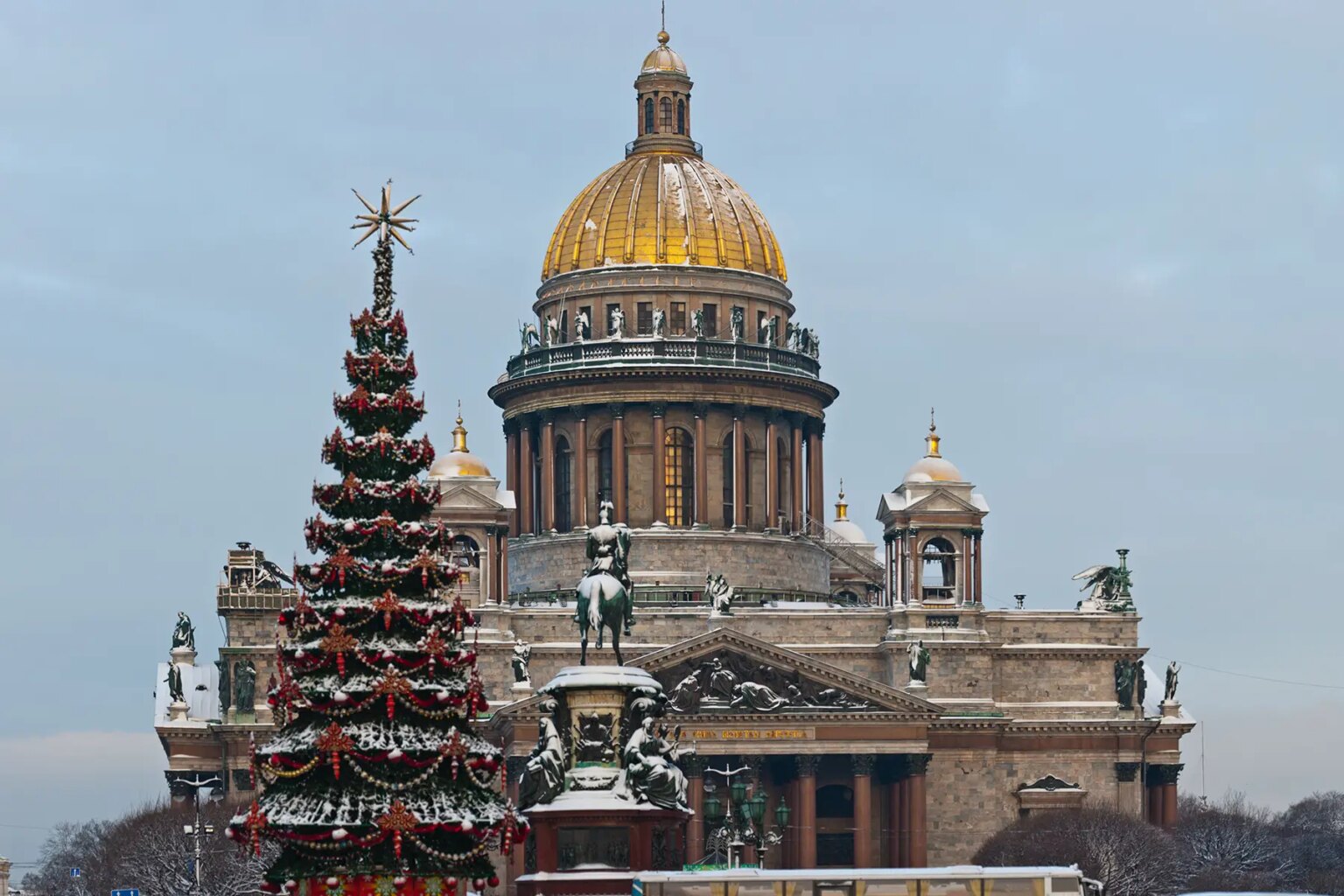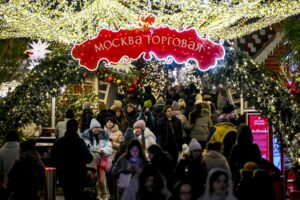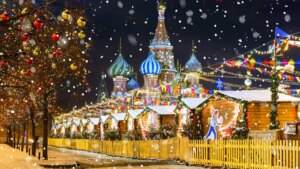Important notice from the Editor in Chief
Maintaining our Russian site is a delicate matter during the war. We have chosen to keep its content online to help our readers, but we cannot ensure that it is accurate and up to date. Our team endeavors to strike the right balance between giving information to those who need it, and respecting the gravity of the situation.
The Festive Season in Russia is a complex affair. This is mainly, but not totally, because of the observance by the Russian Orthodox Church of the Julian calendar instead of the Gregorian calendar.
The Julian calendar, introduced by Julius Caesar in 46 BC, uses a calculation that the solar year (the time between the spring and autumn equinoxes) was 365.25 days.
In 1582, Pope Gregory XIII introduced a calendar that reflected more accurately the time of the solar year. This change created an increasing difference between the two calendars.
In the 18th century, Britain adopted this Gregorian calendar when the difference between it and the former calendar was 10 days. It wasn’t until 1918 that Russia followed suit, but its church clung stubbornly to the old Julian calendar.
The Russian dates of Christmas and the New Year
There is now a difference of 13 days between the two calendars.
As far as Russian Orthodox worshippers are concerned, 7 January is Christmas. The Russian New Year on 14 January can also be celebrated, although this is of lesser importance.
Russian New Year celebrations
Nationally, the Russian New Year is the focal point for celebrations for the festive season. For over 70 years after the Revolution in 1917 the Soviet Union was militantly atheistic with no tolerance of Christian feasts.
The International Workers’ Day on 1 May and the anniversary of the Revolution on 7 November were the great secular celebrations that dominated the Soviet year, but the Russian New Year was the time for the general winter celebration. Even now, most Russian greetings cards make only reference to the New Year; Grandfather Frost takes the place of Father Christmas.
On New Year’s Eve, families and friends gather in Russian homes to enjoy a traditional Russian salad enriched by liberal quantities of mayonnaise. Other cold dishes are on offer, and the drink for the occasion is usually champagne.
Just before New Year, the President gives a short address on television, after which the cameras pan to Red Square. When the Spasskaya Tower Clock in the Kremlin wall chimes midnight, toasts and wishes for the new year abound. If gifts are given, they are presented then.
When the champagne runs out, more modest drinks of wine and beer are drunk by the more moderate drinkers; cognac or vodka are the drinks of choice for the more seasoned imbibers. Parties go on until the early hours of the morning.
Christmas in Russia: a more sober affair
By comparison, the Russian Christmas is a more sober affair as it is a religious celebration. The food is there in plenty and the drinks are not in short supply.
But the 7 January need not be the end of the Festive Season. In a recent Russian newspaper article, there was an account of a bon viveur who started his celebrations on 25 December and ended them on 14 January. For some, at least, the two calendars have their appeal.





